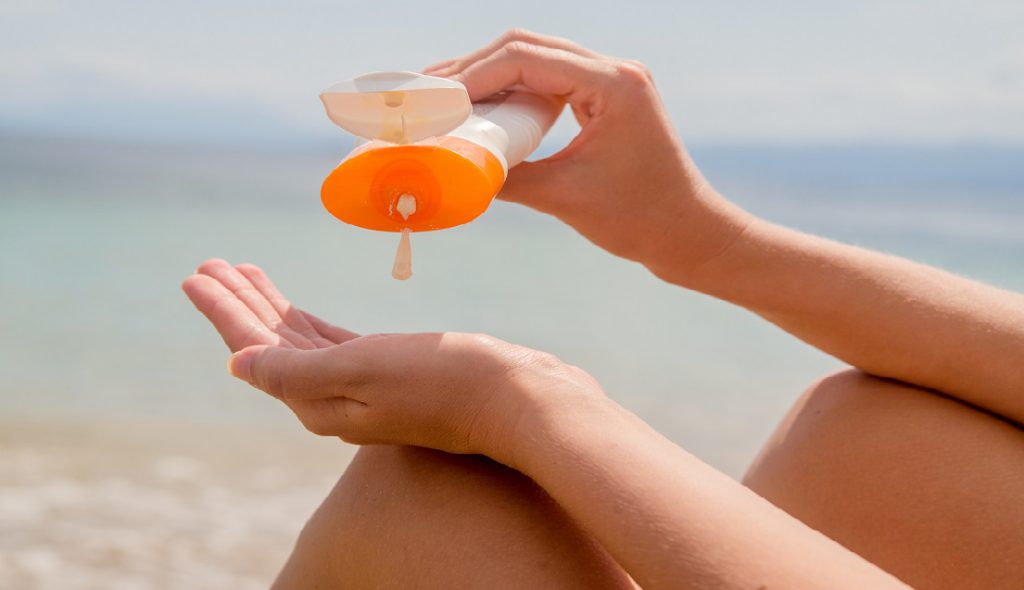Истакнути
- Преузми линк
- X
- Имејл адреса
- Друге апликације
Does Sunscreen Cause Skin Cancer? Separating Fact from Fiction

Sunscreen is a crucial part of many people's daily skincare routine, especially during sunny days. It protects our skin from harmful ultraviolet (UV) rays, which are known to cause skin damage and increase the risk of skin cancer. However, in recent years, some concerns have been raised about whether sunscreen itself could contribute to skin cancer. This blog post delves into the science behind sunscreen and skin cancer, addressing common myths and providing evidence-based answers.
Understanding Sunscreen and UV Radiation
Before diving into the controversy, it's important to understand what sunscreen is and how it works. Sunscreen contains active ingredients that help prevent UV radiation from penetrating the skin. There are two main types of UV radiation:
- UVA Rays: These penetrate deep into the skin and can cause aging and long-term damage.
- UVB Rays: These affect the surface of the skin and are the main cause of sunburn.
Sunscreens are designed to protect against these harmful effects by either absorbing or reflecting UV rays.
The Myth: Sunscreen Causes Skin Cancer
The idea that sunscreen could cause skin cancer stems from concerns about its chemical ingredients and their potential effects on the skin and body. Let's break down these concerns:
1. Chemical Ingredients
Some people worry that the chemicals in sunscreen, such as oxybenzone and octinoxate, can be absorbed through the skin and cause harm. However, research shows that while these chemicals can be absorbed, they are present in the body at very low levels. Regulatory agencies like the FDA and the European Commission have deemed these ingredients safe for use in sunscreens.
2. Free Radicals
There is a theory that certain sunscreen ingredients can produce free radicals when exposed to UV light, potentially causing DNA damage and increasing cancer risk. However, modern sunscreens contain stabilizing ingredients that minimize this risk. Moreover, the protective benefits of sunscreen far outweigh the potential risks of free radical production.
3. Vitamin D Deficiency
Some argue that sunscreen use leads to vitamin D deficiency, which can increase cancer risk. While sunscreen can reduce the skin's production of vitamin D, most people can still get enough vitamin D from limited sun exposure and dietary sources.
The Evidence: Sunscreen Prevents Skin Cancer
Extensive scientific research supports the use of sunscreen as a means of preventing skin cancer. Here are some key findings:
1. Reduces Risk of Melanoma
Melanoma is the deadliest form of skin cancer. Studies show that regular sunscreen use significantly reduces the risk of developing melanoma, particularly in individuals who have a history of sunburns or are at high risk due to their skin type or family history.
2. Prevents Squamous Cell Carcinoma
Squamous cell carcinoma (SCC) is the second most common type of skin cancer. Research indicates that sunscreen use lowers the incidence of SCC by protecting the skin from cumulative UV damage.
3. Protects Against Basal Cell Carcinoma
Basal cell carcinoma (BCC) is the most common skin cancer. Although BCC is less likely to spread than melanoma or SCC, it can cause significant skin damage. Regular use of sunscreen has been shown to reduce the risk of developing BCC.
Tips for Effective Sunscreen Use
To maximize the benefits of sunscreen and minimize any potential risks, follow these guidelines:
- Choose Broad-Spectrum Sunscreen: Look for products that protect against both UVA and UVB rays.
- Use SPF 30 or Higher: Higher SPF provides greater protection, especially for prolonged outdoor activities.
- Apply Generously: Use enough sunscreen to cover all exposed skin, and reapply every two hours or after swimming or sweating.
- Check Ingredients: If you're concerned about chemical ingredients, opt for mineral sunscreens containing zinc oxide or titanium dioxide.
- Complement with Other Protective Measures: Wear protective clothing, seek shade, and avoid peak sun hours to further reduce UV exposure.
Conclusion
The myth that sunscreen causes skin cancer is not supported by scientific evidence. On the contrary, sunscreen is a vital tool in preventing skin cancer by protecting the skin from harmful UV radiation. By understanding the facts and using sunscreen correctly, you can enjoy the sun safely and reduce your risk of skin cancer. Embrace the protective benefits of sunscreen and prioritize your skin health for a brighter, healthier future.
- Преузми линк
- X
- Имејл адреса
- Друге апликације
Популарни постови
7 Health Benefits of Papaya: A Nutritional Powerhouse
- Преузми линк
- X
- Имејл адреса
- Друге апликације
How to boost the hormone of happiness with diet?
- Преузми линк
- X
- Имејл адреса
- Друге апликације
Коментари
Постави коментар